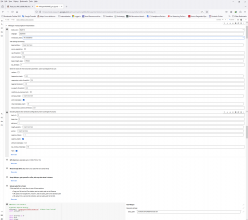@mei2 Do you mean I have to install programs on my local computer for Whisper to work? I thought it was a virtual environment since all sources used are uploaded online. Here's the settings at the address. Only change I make is No Translation.

The address to the audio is the same as in the picture but a different name.
Merry Christmas to everyone!
I'm visiting my parents so I'm off today.

The address to the audio is the same as in the picture but a different name.
Merry Christmas to everyone!
I'm visiting my parents so I'm off today.























